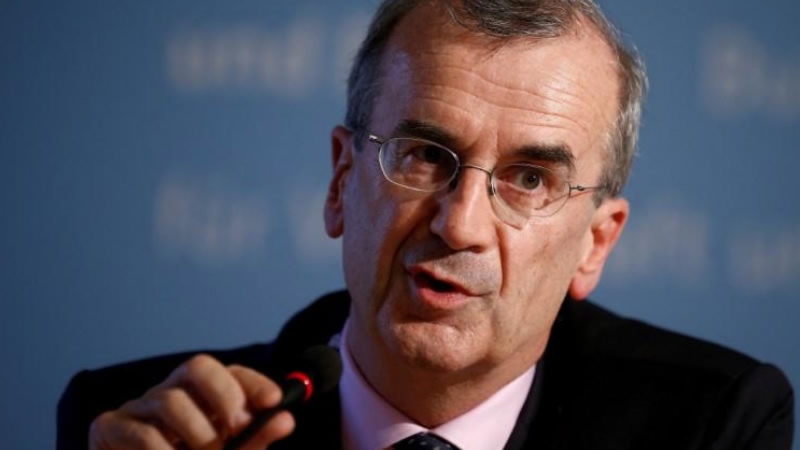
Business
20:43, 04-Dec-2017
French central bank chief sees Basel III capital rules deal this week
CGTN

A deal to complete post-financial crisis capital rules for banks around the globe may be reached on Thursday, the French central bank governor said on Monday, indicating he is ready to accept a compromise.
France has been a key hold-out for completing the Basel III rules but people familiar with the negotiations have said that the Group of Governors and Heads of Supervision (GHOS) due to meet in Frankfurt on Thursday would not gather unless a deal has been informally agreed on.
“I am confident that we are about to finalize a fair and reasonable agreement at our GHOS meeting next Thursday,” French central bank chief Francois Villeroy de Galhau said in a speech at a university in Tokyo.
While much of the Basel accord is already implemented and a final deal has been near several times, a deal this week would end years of effort to harmonize banking rules.
Villeroy, who is also a European Central Bank policymaker, added that key task is now to implement the deal and ensure regulation is not rolled back.

Basel III (or the Third Basel Accord) is a global, voluntary regulatory framework on bank capital adequacy, stress testing, and market liquidity risk. It was agreed upon by the members of the Basel Committee on Banking Supervision in 2010–11, and was scheduled to be introduced from 2013 until 2015; however, changes from April 1, 2013, extended implementation until March 31, 2018, and again extended to March 31, 2019. Basel III is intended to strengthen bank capital requirements by increasing bank liquidity and decreasing bank leverage. /VCG Photo
Basel III (or the Third Basel Accord) is a global, voluntary regulatory framework on bank capital adequacy, stress testing, and market liquidity risk. It was agreed upon by the members of the Basel Committee on Banking Supervision in 2010–11, and was scheduled to be introduced from 2013 until 2015; however, changes from April 1, 2013, extended implementation until March 31, 2018, and again extended to March 31, 2019. Basel III is intended to strengthen bank capital requirements by increasing bank liquidity and decreasing bank leverage. /VCG Photo
“Unilateral deregulation would be nothing less than a lose-lose scenario with serious consequences for the stability of the global financial system – we would be paving the way for the next financial crisis – as well as the competitive landscape for the US, Japanese and European banks,” he said.
This week’s compromise is expected to be about the so-called “output floor,” which limits the extent to which a bank’s capital requirements based on its own risk model can diverge from how they would be calculated under a more conservative model set by regulators.
France and a few others were unhappy with the deal but sources familiar with the discussion said that a long phase-in period would be accepted to soothe their concerns.
Basel III is intended to strengthen bank capital requirements by increasing bank liquidity and decreasing bank leverage.
8224km
Source(s): Reuters

SITEMAP
Copyright © 2018 CGTN. Beijing ICP prepared NO.16065310-3
Copyright © 2018 CGTN. Beijing ICP prepared NO.16065310-3